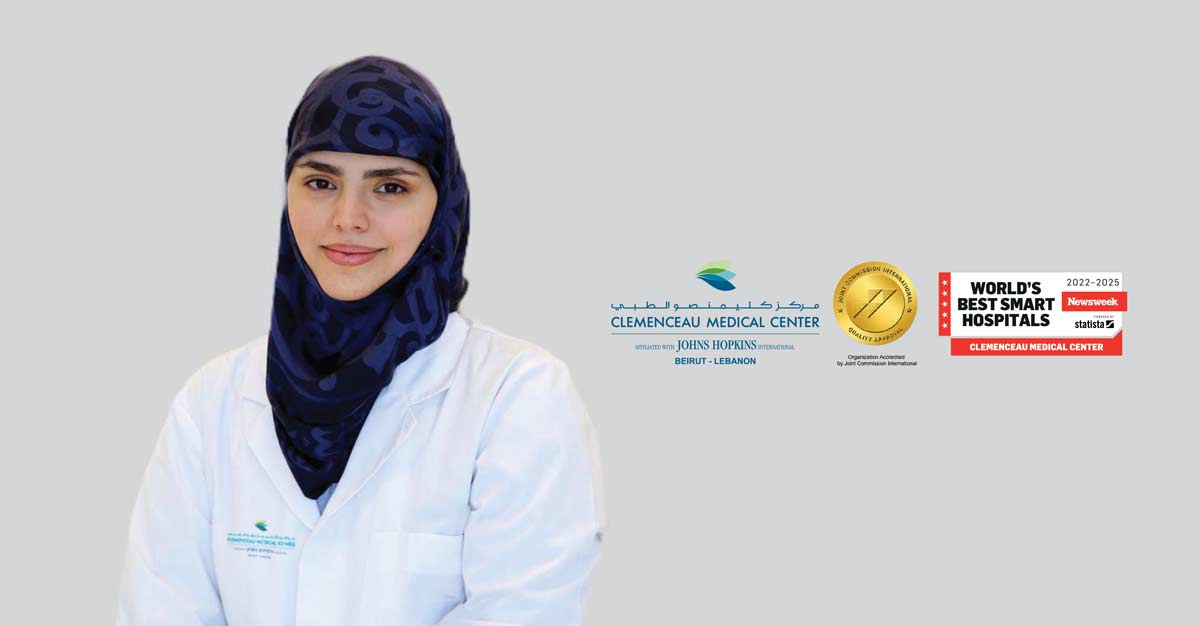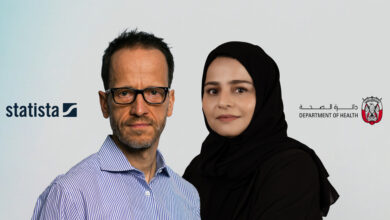Dr. Shirin Muhsen
Vice President of The Quality Department and a Specialist in Breast and Colorectal Tumor Surgery at Clemenceau Medical Center - Beirut
Clemenceau Medical Center-Beirut: A Model for High-Quality Patient Care

Clemenceau Medical Center – Beirut has established itself as a leading healthcare institution, with its high-quality care serving as a cornerstone of its reputation. This is primarily a result of its strategic partnerships and unwavering adherence to global healthcare standards. Dr. Shirin Muhsen, Vice President of the Quality Department and a specialist in breast and colorectal tumor surgery at Clemenceau Medical Center, believes that for CMC, international accreditation has become a necessity, not an option, for hospitals in the region, as patients now demand services that meet global benchmarks.
What do you consider to be the most significant impact of international accreditation on a hospital’s daily operations and the overall quality of patient care and safety?
International accreditation ensures that hospitals consistently operate under a framework of minimum standards that safeguard patient safety and quality of care. This creates a reliable baseline of practices, systems, and monitoring mechanisms that can be trusted across all departments and services.
Beyond the standards themselves, accreditation fosters a culture of continuous compliance, reflection, and improvement. The discipline of preparing for and maintaining accreditation means that hospitals remain in a constant state of readiness rather than reacting only when inspections occur.
How has Clemenceau Medical Center’s pioneering role as the first hospital in the region to adopt JCI guidelines since its establishment, and to achieve JCI accreditation, along with its affiliation with Johns Hopkins International, contributed to building a strong patient safety culture?
Since its establishment, Clemenceau Medical Center, Beirut has been the first in the region to adopt JCI guidelines and to achieve JCI accreditation, embedding patient safety as a cornerstone of its mission. This pioneering role laid the groundwork for operational excellence and a continuous drive to enhance patient safety systems.
In addition, CMC’s affiliation with Johns Hopkins International has further strengthened this commitment by providing access to state-of-the-art guidelines, global best practices, and continuous training opportunities. This affiliation ensures that clinical staff are equipped with the latest knowledge and skills, supporting safe practices across new projects, expansions, and advanced medical procedures. Together, JCI accreditation and the Johns Hopkins affiliation sustain a strong culture where patient safety is deeply embedded in daily practice and consistently maintained over time.
Could you share an example of a specific procedure or action implemented at CMC as a direct result of the JCI accreditation process that has led to improved patient safety outcomes?
One of the direct outcomes of accreditation is the strict alignment with International Patient Safety Goals (IPSGs). For example, CMC enhanced its patient identification process by implementing a dual-identifier system, requiring both patient name and date of birth, to prevent errors in medication administration, diagnostics, and procedures.
While this may seem simple, the effect has been profound in reducing risks of misidentification and enhancing trust between patients and staff. Importantly, improvements like these are not made only in response to an accreditation visit but are maintained continuously as part of CMC’s ongoing monitoring and safety culture.
How does international accreditation influence patient trust in the hospital? Do you notice that patients are becoming more aware of the importance of these accreditations?
Accreditation provides patients with the reassurance that minimum safety and quality standards are in place throughout the facility. While accreditation alone does not guarantee loyalty, patients can clearly see its impact through the consistency and standardization of their care experience.
Patients today are also more informed and empowered than ever before. With information just a few clicks away, they are aware of their rights, increasingly demand autonomy, and have higher expectations of the institutions caring for them. Accreditation signals transparency and accountability—values that patients now actively seek.
In what ways do international standards foster better collaboration among different medical departments, such as nursing and pharmacy, to ensure patient safety?
International standards provide all disciplines with a shared framework and common safety goals, breaking down silos between departments. Nursing, pharmacy, physicians, and ancillary teams work toward unified objectives, such as medication reconciliation, patient identification or infection control, under the same defined processes.
This creates a culture of joint ownership, where each discipline understands its role in achieving patient safety outcomes. The result is smoother collaboration, fewer communication gaps, and safer care transitions.
In your opinion, has international accreditation become a necessary standard for hospitals in the region? And if so, why?
Yes, international accreditation has become a necessity rather than an option for hospitals in the region. Healthcare systems are evolving rapidly, and patients now demand services that meet global benchmarks of quality and safety. Accreditation ensures hospitals rise to this expectation. Moreover, it drives institutions to invest in continuous education, patient safety systems, and risk management.
It also enhances recognition among peers, enabling hospitals to collaborate regionally and globally while attracting top talent and building trust with patients.
Based on your experience, what do you see as the next step for Clemenceau Medical Center on its journey toward excellence in patient safety?
CMC has already positioned itself as one of Beirut’s leaders in patient safety and quality of care. The next step is to pursue specialized accreditations across different programs, ensuring that excellence is not only maintained at a general level but also within highly focused areas of practice.
Patients and healthcare partners can expect to see future announcements that reflect this direction. These specialized recognitions will further strengthen CMC’s reputation as a pioneer in adopting international standards while tailoring them to the unique needs of its patient population.
What message would you convey to other doctors and medical institutions about the importance of adopting international accreditation standards?
I would emphasize that accreditation should not be seen as a checklist exercise to pass an inspection, but rather as a framework that supports safer systems and better patient outcomes. It creates the foundation for reliable care delivery and continuous improvement. For doctors and medical institutions, accreditation also provides a sense of alignment and shared language across teams. It reassures patients, strengthens trust, and elevates the credibility of the institution in the community and among peers. Ultimately, it is an investment not in paperwork, but in people, the patients we serve and the professionals who care for them.














